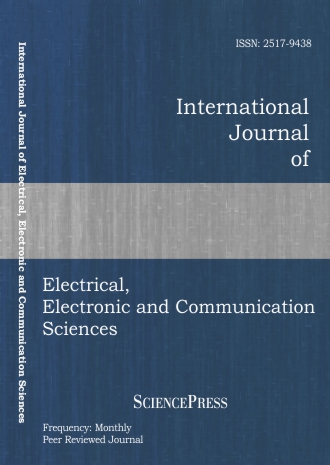
Scholarly
Volume:9, Issue: 6, 2015 Page No: 566 - 571
International Journal of Electrical, Electronic and Communication Sciences
ISSN: 2517-9438
1177 Downloads
Combined Source and Channel Coding for Image Transmission Using Enhanced Turbo Codes in AWGN and Rayleigh Channel
Any signal transmitted over a channel is corrupted by noise and interference. A host of channel coding techniques has been proposed to alleviate the effect of such noise and interference. Among these Turbo codes are recommended, because of increased capacity at higher transmission rates and superior performance over convolutional codes. The multimedia elements which are associated with ample amount of data are best protected by Turbo codes. Turbo decoder employs Maximum A-posteriori Probability (MAP) and Soft Output Viterbi Decoding (SOVA) algorithms. Conventional Turbo coded systems employ Equal Error Protection (EEP) in which the protection of all the data in an information message is uniform. Some applications involve Unequal Error Protection (UEP) in which the level of protection is higher for important information bits than that of other bits. In this work, enhancement to the traditional Log MAP decoding algorithm is being done by using optimized scaling factors for both the decoders. The error correcting performance in presence of UEP in Additive White Gaussian Noise channel (AWGN) and Rayleigh fading are analyzed for the transmission of image with Discrete Cosine Transform (DCT) as source coding technique. This paper compares the performance of log MAP, Modified log MAP (MlogMAP) and Enhanced log MAP (ElogMAP) algorithms used for image transmission. The MlogMAP algorithm is found to be best for lower Eb/N0 values but for higher Eb/N0 ElogMAP performs better with optimized scaling factors. The performance comparison of AWGN with fading channel indicates the robustness of the proposed algorithm. According to the performance of three different message classes, class3 would be more protected than other two classes. From the performance analysis, it is observed that ElogMAP algorithm with UEP is best for transmission of an image compared to Log MAP and MlogMAP decoding algorithms.
Authors:
References:
[1] C. Berrou, A. Glavieux, and P. Thitimajshima, “Near Shannon Limit